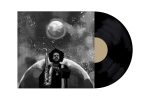My anti-country music disposition was my religion. My denial of its value was a constant, non-debatable truth, justified solely by the phrase “That’s just the way it is.” Country music was an offensive deviation from what I deemed productive or good. As soon as the twang would trickle through the slits of the radio, my eyes would reel back, my palms would fly to my ears, and sometimes a resonant moan would even escape my lips. It was like an allergy. I would not tolerate it.
When college lured me down South, where country music seems to spout proudly from scores of speakers — in contrast to hiding beneath its “guilty pleasure” status in the North — my hostile response to the twang became ultra-heightened. I was vocal about its inferiority to all other types of music and felt powerful spewing verbal assaults at the genre. It was a platform I instituted for making friends with like-minded country-haters.
Quickly, however, I met one of my best friends of all time, who was everything I looked for in a friend, and who just so happened to sing along happily to country music. I faced a conundrum: Did I stand by my strong opinion about the genre, and risk taking blows to our friendship? Early on, I made inconspicuous efforts to resist the genre, tapping into her phone to switch the playlist here and there. Eventually, this developed into a full-blown mission to convert her to my taste, which is predominantly classic rock, R&B, singer-songwriters and some jazz standards. To my surprise, she listened to my music with attentive, open ears.
When this friend, one of my favorite people in the world, asked me why I hated country music so much, I could not tell her. I certainly did not want to tell her either; I saw a curious gloom settle on her face when she realized this was the case. I did not want to hurt her feelings further.
It got me thinking about tolerance. How would I feel if someone so strongly criticized my musical taste, something of which I am, frankly, quite proud? If my friend told me I needed to change the music I listened to, how would I feel? Would I be receptive? I don’t think I would be — which is why it amazed me to see my friend listen so sincerely to my favorite songs.
As children, we are carefully molded by the adults in our lives, who, in our young eyes, know all there is to know. Their opinions are our facts, and once we learn the difference between opinion and fact, many of those “facts” become our opinions, which we then bestow upon our children. Even if we start to take control of our own perspectives, many of the imprints we garnered as children last a lifetime. Raised by avid country-haters, my dislike for country music feels natural, feels certain, but I cannot explain why.
Now, there are worse personality traits to take out of childhood than an intolerance for a certain taste in music. Had I been raised to be narrow-minded regarding people’s identities and sexual orientation, there would be a much bigger problem on our hands. Fortunately, that is not the case.
But intolerance is intolerance. I was vigorously anti-country and likely hurt the feelings of many country enthusiasts as an outward combatant of twang. Individual opinions, though seemingly inconsequential in the grand scheme of things, have the capacity to incite long-lasting pain. In considering anti-country music part of my own identity, I was blind to the damage it caused others. If it took meeting someone I loved who had a particular fondness for country music to realize my firm stance was nothing but harmful, so be it.
It was a simple lesson in kindness. I could love the music I love while tolerating, and possibly even appreciating, the personal leanings of others. There was no point in building boundaries to meaningful relationships. A few things in life should not be tolerated — racism, colorism, antisemitism, transphobia, sexism and other forms of bigotry. But it’s wasteful to expend energy denouncing a benign inclination.
I decided I would listen, just as my friend did to my favorite music, and I would let go of my dramatic response to the twang, and I would finally get over myself. My automatic repulsion subsided as soon as I started to really pay attention, to notice details of a song my friend savored. I realized some of my favorite musicians — including my all-time favorites, The Beatles — had dabbled in country-esque music throughout their careers. Folk rock, a genre I have loved over the years, has various similarities to country. Those were realities I had chosen to avoid before, knowing they would compromise the validity of my negative outlook.
Since my decision to let go of my destructive sentiment, I have initiated a hunt to remove all unnecessary antagonistic feelings from my life. I am actively reallocating my energy, focusing on learning and strengthening friendships. Acceptance and appreciation for differences, I am finding, will naturally assemble trails that lead to fulfillment and healthy relationships. I feel refreshed, independent, happy.
Although I may never go out of my way to turn on country music, I am able to enjoy time with my friends who want to listen to it. I am able to be more supportive than ever before. My love for classic rock and R&B will always prevail, but I need not take down others’ preferences to prove mine superior.
















